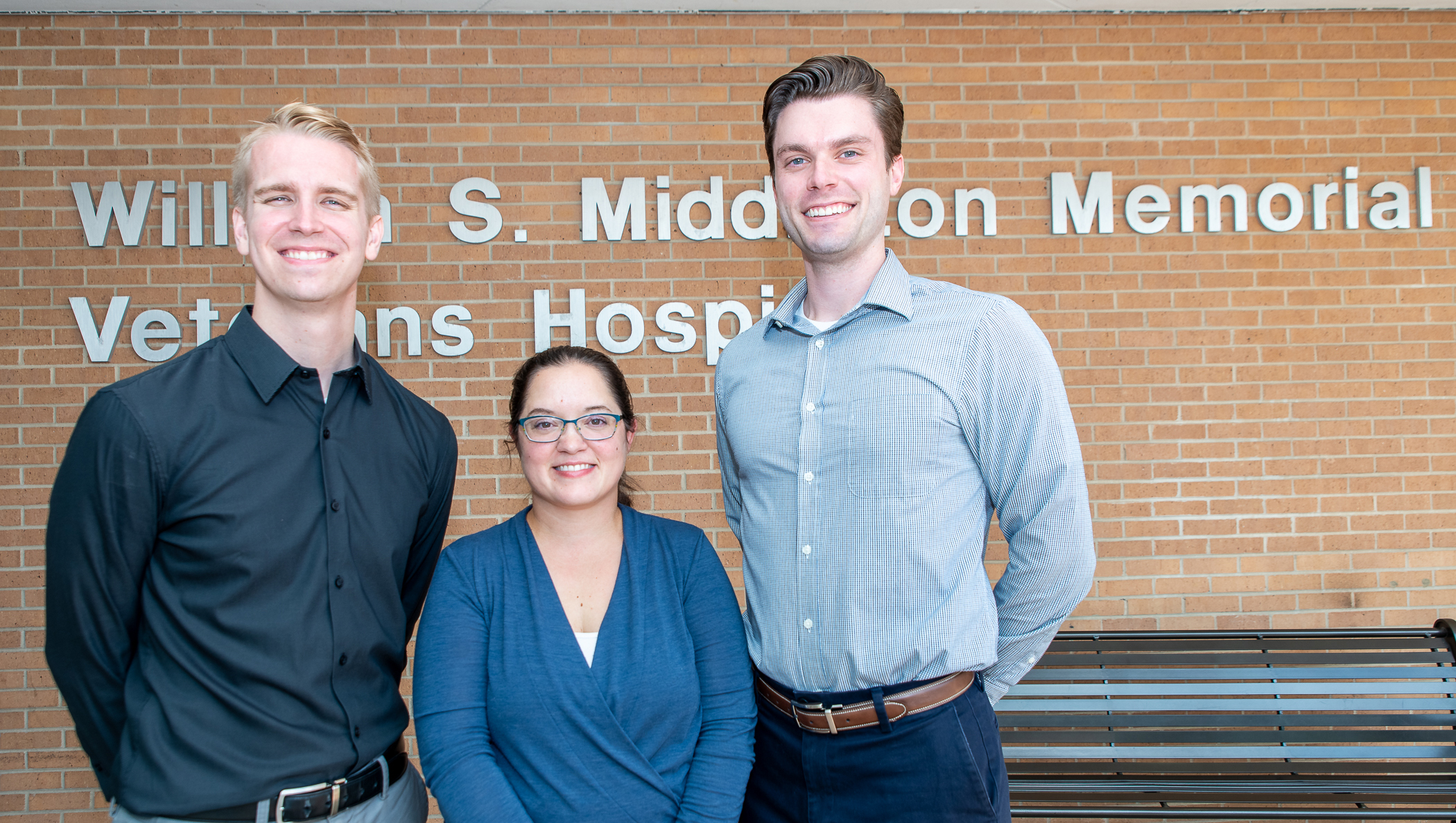
Alumni and colleagues created a first-of-its-kind specialty pharmacy service to provide additional support, education to veterans undergoing complex medication therapies
By Brianna Foth
Complex chronic conditions such as cancer, HIV, rheumatoid arthritis, or hepatitis C often come with equally complex treatment regimens, including a growing class of high-cost specialty medications that can provide life-changing relief from symptoms, but also require special education, handling, follow-up care, and monitoring. For example, some medications have to be stored at specific temperatures, administered by the patients via intramuscular injection, or therapies have to follow a particular order.
In response to this need, a new sector of pharmacy has been growing rapidly over the last decade: specialty pharmacy, which provides high-touch education and monitoring to ensure that patients know how to use their medications properly — maximizing the effectiveness of treatments, while also reducing the likelihood of expensive doses going to waste.
“Specialty pharmacists are an integral part of managing these medications and improving patient outcomes in these chronic disease states, as well as reducing costs for the health system.”
—Ryan Simonet
“Specialty pharmacists are an integral part of managing these medications and improving patient outcomes in these chronic disease states, as well as reducing costs for the health system,” says Ryan Simonet (PharmD ’19), a clinical pharmacist practitioner at the William S. Middleton Memorial Veterans Hospital (Madison VA), who also completed his residency there. “With specialty pharmacy, everyone wins.”
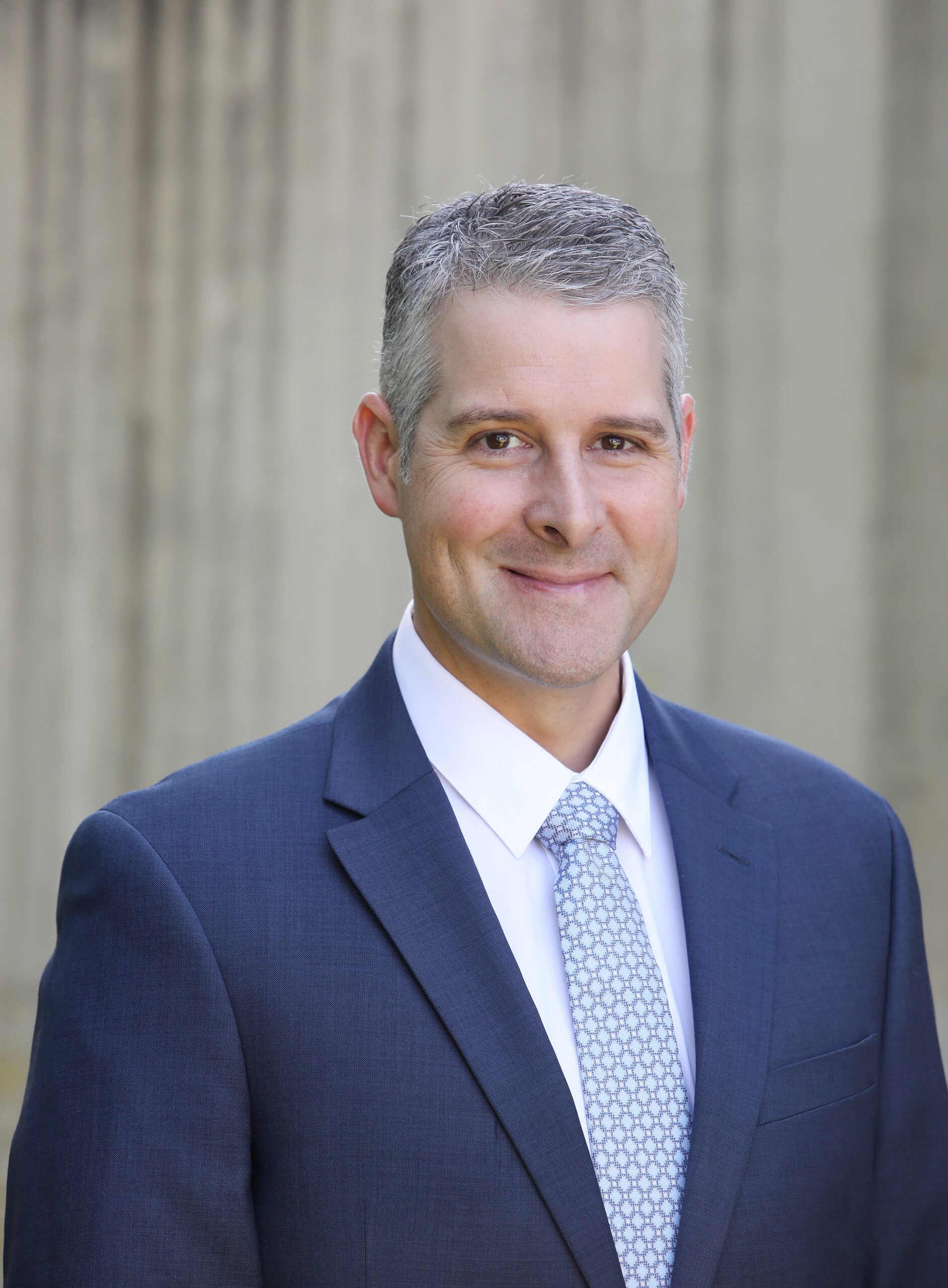
Starting in 2020, an innovative centralized specialty medication management (CSMM) service — designed and evaluated by a team including several alumni of the University of Wisconsin–Madison School of Pharmacy, as well as Assistant Professor in the Pharmacy Practice and Translational Research Division Amanda Margolis (PharmD ’09, MS ’17) — entrusts that work to a small but skilled team of pharmacists.
“The CSMM service fills a need in how we monitor specialty medications,” says Simonet. “We want to complement existing services.”
The CSMM marks the first centralized specialty pharmacy service to be implemented in the Veterans Health Administration, and it’s already been named a Strong Practice by the VA Clinical Pharmacy Practice Office (CPPO), meaning that other pharmacy departments could consider adopting it.
“This project highlights the bonds and collaboration between the School of Pharmacy and Madison VA,” says Chief of Pharmacy Andrew Wilcox (PharmD ’01). “School of Pharmacy faculty and students helped to expand and improve the service.”
Filling a need
In the private health sector, specialty pharmacy clinics often serve a dual purpose: improving patient outcomes by providing crucial education and follow-up care and helping drug manufacturers and payers (such as insurance companies) verify the effectiveness of these high-cost medication therapies by ensuring patients use and administer them properly.
But within the VA health system, healthcare costs are reimbursed by the federal government instead of insurance companies, removing the financial need for the creation of dedicated specialty pharmacy clinics. Instead, many VA health centers — including, until recently, the Madison VA — entrust the work of providing specialty education and follow-up care to the pharmacists, nurses, and other care providers embedded within their existing clinics that specialize in specific disease states.
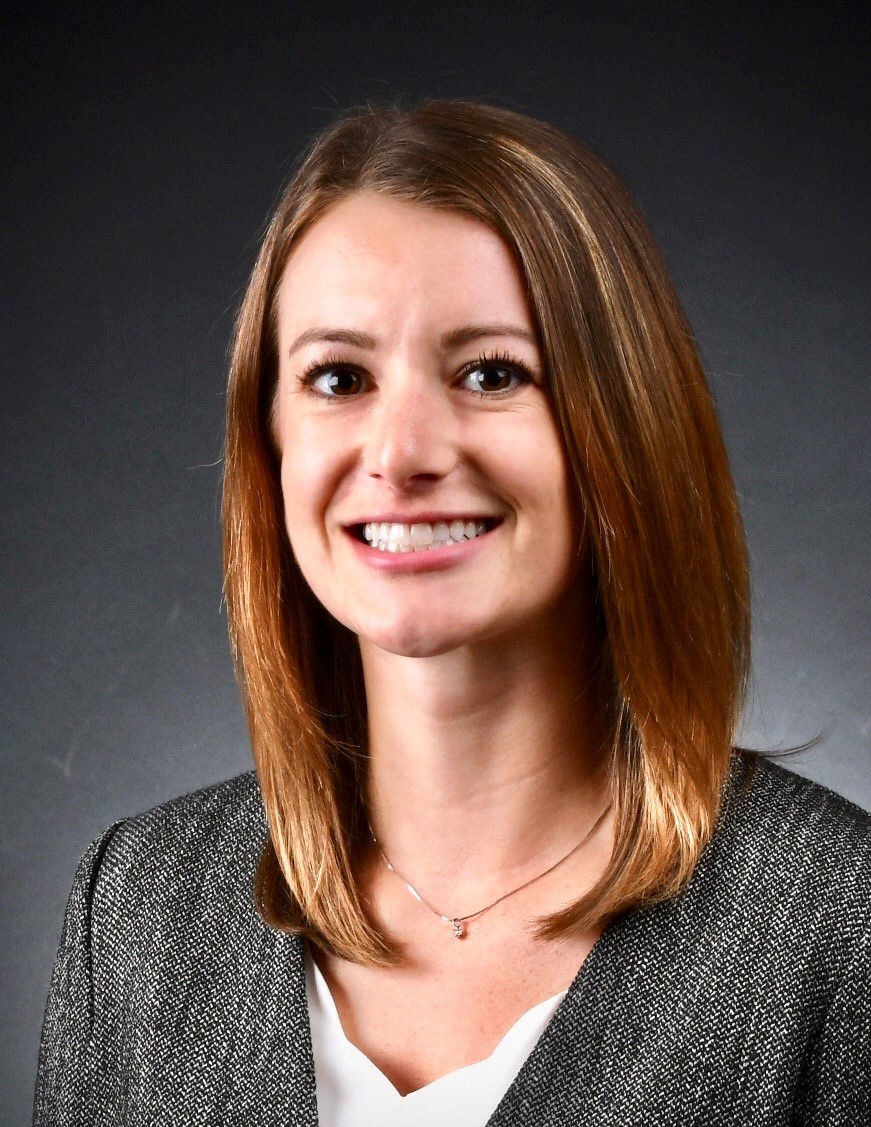
But sometimes, these providers see a high volume of patients and juggle a myriad of duties, which can hinder their ability to provide detailed care instructions and follow up at regular intervals.
“There wasn’t necessarily that same need to create a specialty pharmacy within the VA system, initially,” says Margolis, who also works as a clinical pharmacy specialist at the Madison VA. “But now, we’re seeing some gaps with patients not storing or administering their medications appropriately because they didn’t receive proper education. And this service has stepped in to fulfill that role that the private sector has, that the VA was maybe missing.”
To address the gaps in care, administrative staff at the Madison VA, including Wilcox and Associate Chief of Pharmacy, Ambulatory, and Specialty Care Ellina Seckel, consulted with Simonet and Emily Bollom (PharmD ‘18), who were administrative residents at the time. The two agreed to take on the task of designing a specialty pharmacy service for the hospital as their residency projects, assisted by Margolis.
“We identified a need to improve how we prescribe and follow up on specialty medications,” says Simonet. “So, we wanted to figure out what pharmacists’ potential role in a centralized specialty medication management service would look like.”
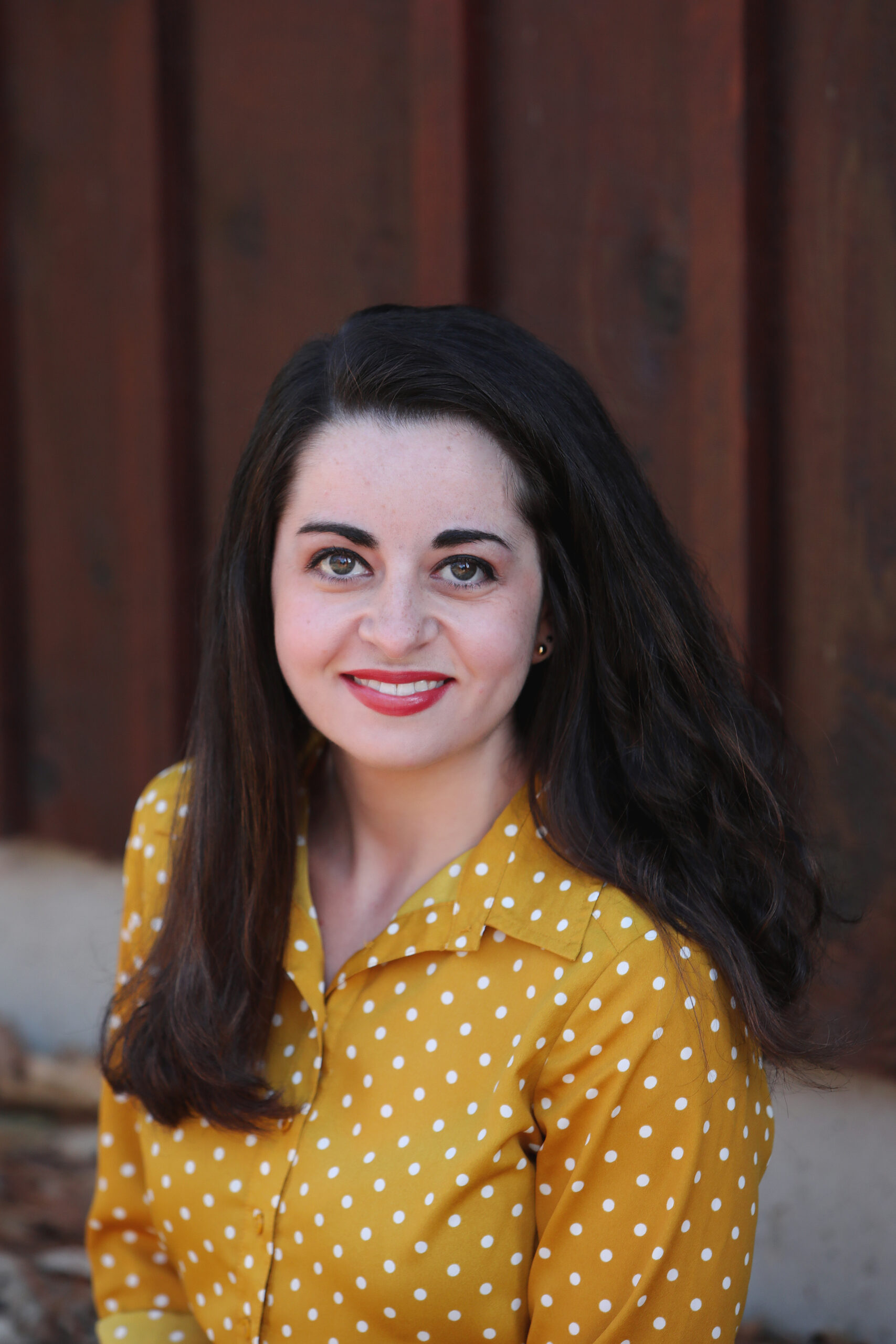
The service they designed involves clinical pharmacist practitioners setting up phone or video appointments with patients approved for specialty medications — usually injectable biologics such as adalimumab (also known as Humira) — and then meeting with them one-on-one to review their education, technique, storage protocols, and to check for early side effects that they can help mitigate. Later, the pharmacists schedule follow-up appointments, typically at two weeks, three months, six months, and 11 months.
“Whenever someone is approved for a high-cost, complex medication on our service, we automatically set up an appointment,” says Margolis. “We check on them periodically, usually through about the first year or until we get them to goal. Once they’re comfortable on their medication and they’re consistently using it appropriately, we can discharge them from our service.”
In January 2020, the CSMM service — then staffed by just two pharmacists, Margolis and Anna White, a clinical pharmacist — began seeing its first patients. After finishing his residency, Simonet also joined the service as a clinical pharmacist practitioner in summer 2022.
“It’s hard to describe what a cool feeling it is, taking an idea from conceptualization all the way through implementation, making sure it’s sustainable in the long-term, and now working in the service that I had a part in creating,” says Simonet. “It’s really cool to have seen it all the way through.”
Improving care
By the end of its first year, the CSMM service had successfully enrolled 54 veterans and conducted 157 patient visits. Although the challenges posed by the COVID-19 pandemic slowed initial enrollment, the service now manages approximately 100 to 120 patients at any given time.
One of the most valuable aspects of the service, says Margolis, is that its one-on-one meetings allow pharmacists to help their patients identify and troubleshoot early challenges that can lead to problems with medication adherence down the line.
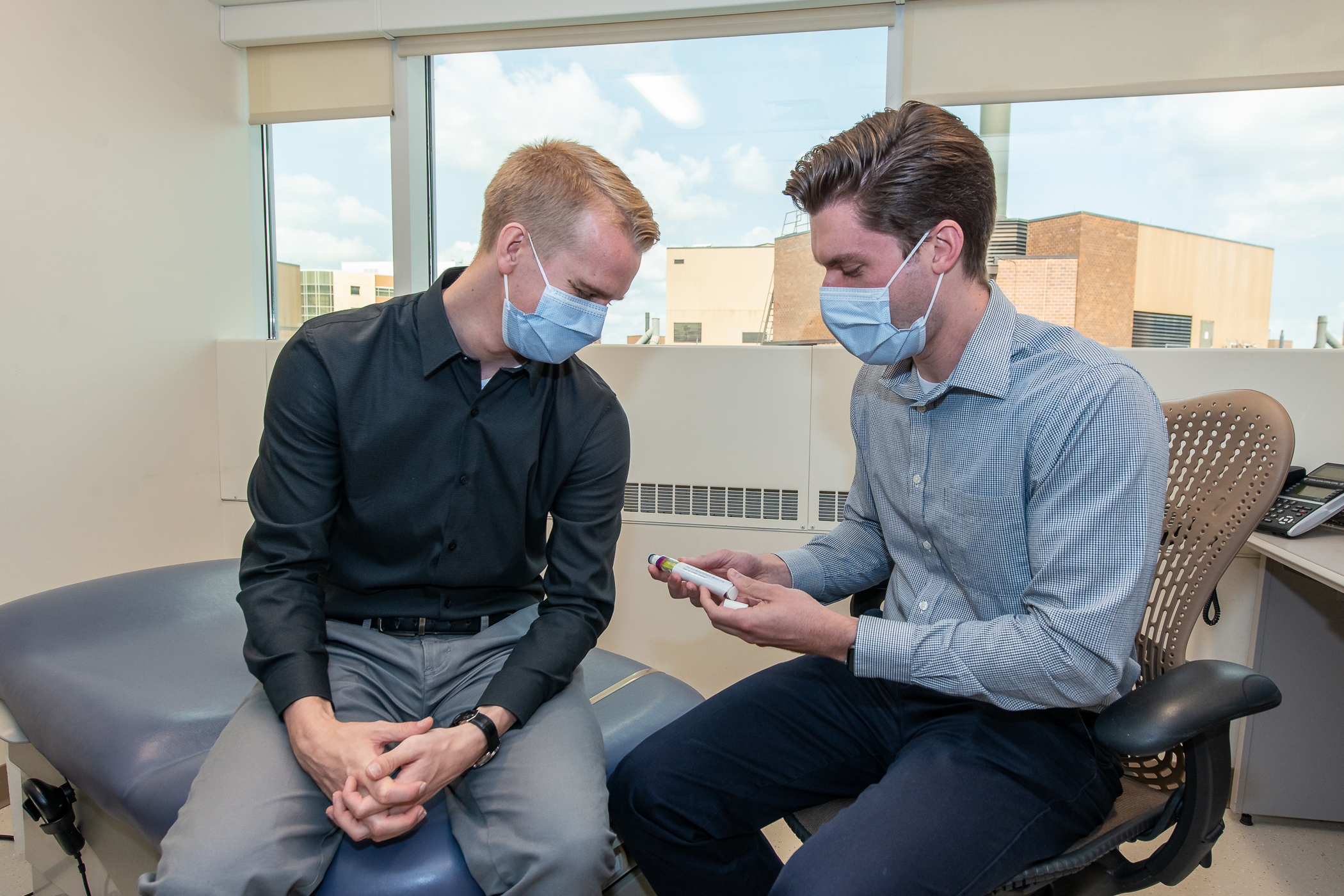
“The CSMM service is very patient care, patient education-focused,” she says. “Some of the medications come in different devices. And for patients with dexterity issues or needle phobia, we can help find a device that’s easier for them to use.”
For Simonet, an especially rewarding part of working for the service has been seeing his patients become visibly more comfortable after meeting with him to discuss their concerns about self-administering injections for the first time.
“It’s great to be able to be there for the patient, while they’re in the comfort of their own home, and see them go from having a little bit of apprehension, having never used an injectable medication before, to being all smiles and realizing it wasn’t as bad as they thought it would be,” he says. “It’s nice to be there, making sure they’re using the proper injection technique, and answering any questions they have.”
Shortly after the service began seeing its first patients, the team began developing methods to evaluate its impact on patients and overall feasibility. To assist with this work, they recruited then-PharmD students Tyler Albright (PharmD ‘21) and Samuel Taylor (PharmD ‘22), who helped conduct a retrospective chart review of various aspects of the service.
In May 2022, they published an extensive report of their findings in the Journal of the American Pharmacists Association, in which they concluded that the service was not only feasible in the long-term, but that it had successfully contributed to safe and effective medication use for its enrolled patients. The service even helped certain patients change or discontinue medications that were no longer working.
“We have the training, we have the expertise, we have the willingness to provide it. It’s very rewarding.”
—Emily Bollom
“The regular follow-ups are very useful,” says Albright. “Say, if a patient is not due to be seen back in-clinic for six months, and the medication worked great originally, but then a few months later, it stopped working, we can step in and help out. And that’s always something that patients benefit from, because if something’s not working, you’ll want to find a different option.”
Now, the team is working to also evaluate the service for cost-effectiveness. Early data suggests that the service may actually be saving more money than it costs to operate.
“Essentially, we found a positive return on investment,” says Simonet. “Not only is this service helping our patients, it’s also cost-effective.”
“The VA is unique in that our goal with cost avoidance is that the costs we’re avoiding go directly back into caring for more veterans,” says Bollom. “So, the more we can save, the more care we can provide.”
Setting an example
In summer 2022, the team was pleasantly surprised to learn that their CSMM service had received national recognition as a Strong Practice by the Pharmacy Benefits Management Clinical Pharmacy Practice Office (CPPO) — a pharmacy oversight office within the Veterans Health Administration (VHA) that creates tools and resources to support clinical pharmacy practice expansion and optimization.
With this designation came an invitation to create an implementation guide, to be distributed by the CPPO, to help other VAs across the country create and implement similar services within their own health care centers. The team is now working to create this guide, which will include toolkits and resources to guide those implementation efforts.
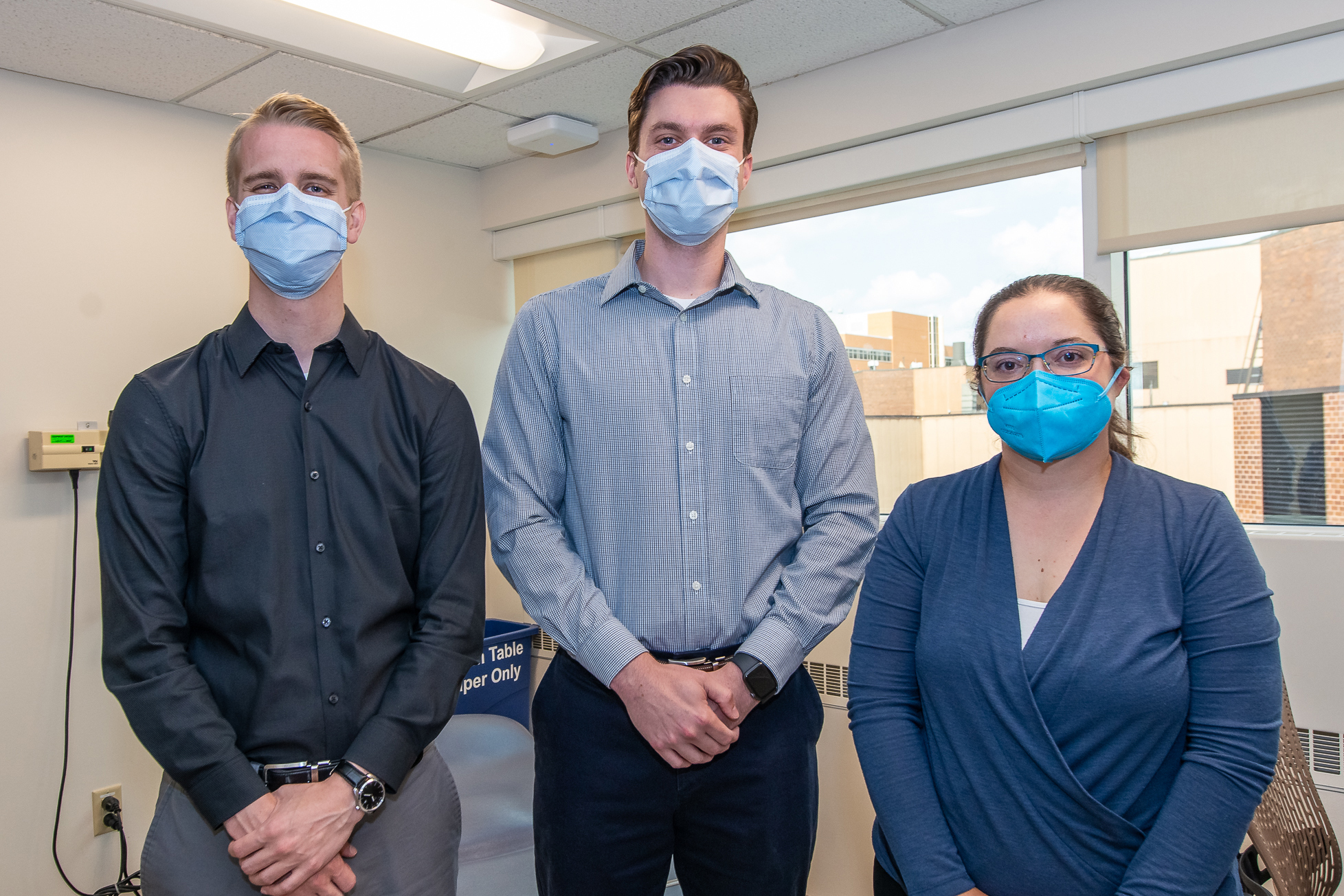
“It was very humbling to receive this designation,” says Simonet. “It’s really cool to see everyone’s hard work pay off, not only on a daily basis in the clinic, where we get to see the smiling faces of the veterans that are benefiting from the service, but also to be nationally recognized as a Strong Practice.”
But while the team prepares to share their innovative service with VA centers around the country, they are also working to expand the service locally by extending their radius of care to include additional Wisconsin VAs, following what’s known as a “hub-and-spoke” model, with the Madison VA as a central hub, and other VAs forming “spokes” that can refer their patients to Madison for specialty pharmacy services. In an initiative led by Albright, the team has already begun seeing patients from the Tomah VA Medical Center located in Tomah, Wis.
“The Madison VA has a robust program, and so smaller VAs don’t necessarily need their own; they can use this hub that will call those other VAs, aka spokes, to offer that care for them,” says Margolis. “They don’t need to hire a pharmacist or devote time when there’s not enough patients to require it. It makes sense to have one pharmacist covering a wider geographical area.”
“It’s been cool to see this seed of an idea grow into this really successful initiative that we’re now spreading to other VAs, for more people to receive this level of care. We’ve shown pharmacy being a solution to a problem,” says Bollom. “We have the training, we have the expertise, we have the willingness to provide it. It’s very rewarding.”
“I hope others are able to utilize what we’ve done here and continue to offer better services for veterans around the country.”
—Tyler Albright
Having seen the impact the service has had on their own patients, the team now looks forward to seeing the impact their idea can have at a national level.
“It’s been hugely beneficial. Everyone that’s been involved in it, from veterans all the way through leadership, appreciates it,” says Albright. “I hope others are able to utilize what we’ve done here and continue to offer better services for veterans around the country.”
“It’s very motivating to continue to improve this service and expand further,” says Simonet. “How can we make this service better? How can we make it more effective? And ultimately, how can we take better care of our veterans moving forward?”

